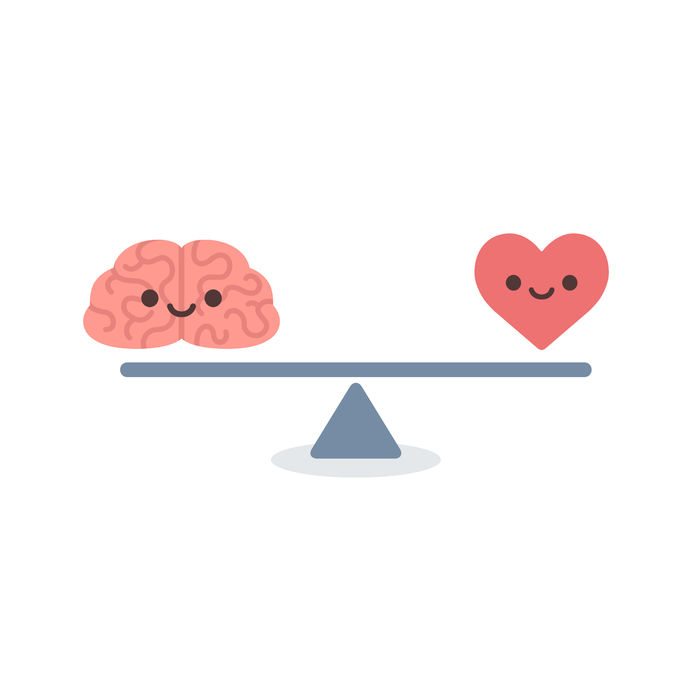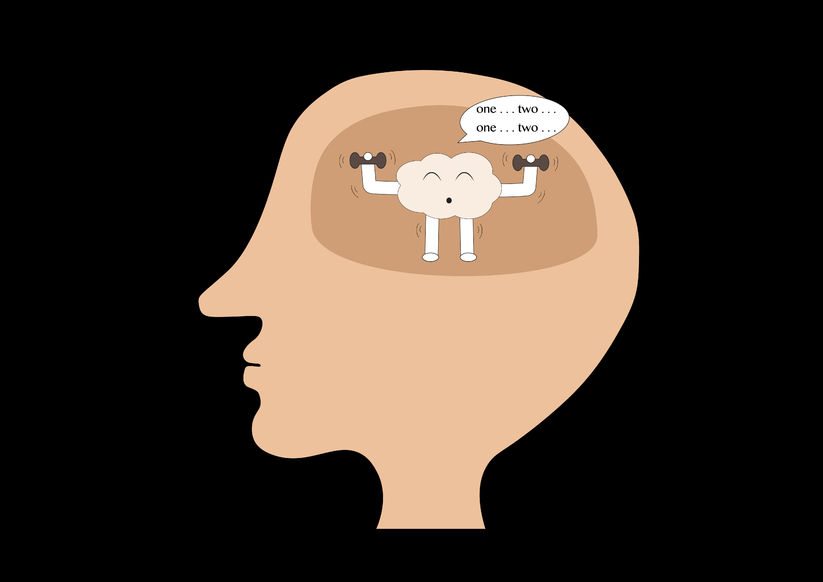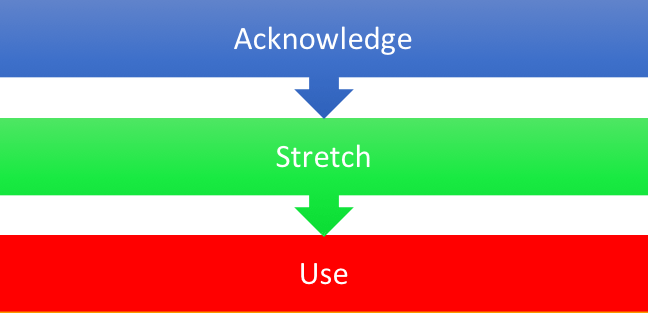The Clash of Minds
“I have to quit smoking.” You’ve probably said this many times when deciding to quit smoking.
Maybe you wake up in the morning coughing and feeling nauseous because you were chain smoking the night before.
Perhaps you catch yourself running out of breath at odd times.
Or maybe a loved one pursued you to stop and you thought you should give it a go because deep down you know they are right.
And although you have the best intentions about quitting….you still find yourself lighting up a cigarette after a few days.
Now here’s where it gets interesting.
People go back to smoking even they’re using nicotine gums, patches or pills.
They light up a cigarette even if they know how much it’s harming their health.
They smoke one cigarette after the other even if they know how many money problems, restrictions, and family arguments smoking is causing them.
BUT WHY?
Why would you keep on smoking, even though you know you shouldn’t?
Smokers are not crazy. There’s a pretty simple explanation as to why they don’t quit.
And it has to do with, what else?
This complex machine called “mind.” Our mind has more or less two aspects.
Our logic and our emotions (remember that our emotions are part of our brain, too).
Sometimes our logic and our emotions work together. Other times, they don’t.
For example, just remember the last time you attacked a delicious cake, even though you’d promised yourself to go on a diet (or is it just me?).
What happened there?
Your logic wanted you to go on a diet, but your emotions wanted you to eat and feel good at that moment.
There was a clash of minds. Your logic and your emotions were not on the same page.
Well, that’s exactly what happens with smoking.
Let me explain.
Deciding to Quit Smoking: Logic vs. Emotions
So your logic says you must stop smoking because you are harming your health, your pocket and the feelings of those who love you.
On the other hand, your emotions may not be on board.
Your emotions might be telling you that you need smoking to feel relaxed, happy and fulfilled.
As a result, you feel worried about becoming cranky without a cigarette. Or about what you’re gonna do with your hands when you’re bored.
Or about how you can relax without smoking.
And let’s face it: if you feel bad about quitting, then your decision to quit will not stick with you.
Know what I mean?
That’s why we only use the CBQ quit smoking method. Because this is the only method that removes your desire for cigarettes. Here I show you how to stop desiring cigarettes with the CBQ method.
But how exactly do your emotions affect your psychology and your decision to quit smoking?
The answer is simple. Your emotions play some mind tricks on you that make you postpone quitting.
These are not vague, wishy-washy, wizard-of-Oz kind mind tricks. No. I hate these things.
These mind tricks (or as they’re called in Psychology, cognitive biases), happen to all of us for all kinds of things. It’s just how our mind works.
The good news is that once you know these mind tricks, something great will happen:
You will be able to make your emotions work for you and help you quit smoking.
Yes, knowing about these mind tricks gives you power over them. Because when you know how your emotions work, you can change them so you can quit smoking and feel GOOD about it.
Always remember that you are in charge.
Ok so here are the 3 most common mind tricks that your mind plays on you when you try to quit smoking and what to do to avoid them.
Ready?
Let’s roll.
The 3 Mind Tricks
Mind trick #1. “I will quit later. Nothing will happen to me.”
How many times have you said “I will quit on Monday”, or after Christmas, Summer, a promotion or any stressful event….
…but when that time came, you postponed quitting for another time in the future?
It just wasn’t urgent enough to quit at that moment.
If that has happened to you, is because of a very common mind trick, called “The Present Bias.”
What’s this Present Bias?
The present bias makes us care ONLY about what’s happening now.
While living and enjoying the present moment is good and healthy, it sometimes leads us to ignore our future.
And that’s a problem when it comes to quitting smoking.
Because not worrying about the future, makes you:
- Feel invincible.
- And focus only on the instant gratification you get from a cigarette.
So you stop thinking about the consequences of smoking.
As a result, the “I will quit tomorrow” becomes “I will quit next week”, next week becomes next year and next year becomes never.

“I know smokers who lived up to 90 years old”
or “Yes, smoking causes cancer, but I don’t think this could ever happen to me.”
This mind trick is responsible for most of our bad habits – unhealthy eating, drinking and yes, procrastinating.
But like everything else, you can easily overcome it.
What to do:
To overcome the present bias mind trick, you need to create a vivid image of how your life will be like in 10 or 20 years from now if you keep on smoking.
Let’s do this here.
Ok, so the craving strikes.
STEP A: Close your eyes and picture your life 10 years from now as a SMOKER.
Where are you?
What are you doing?
Who are you with?
How is your health?
Make this image really detailed and keep it in your mind for a few moments.
STEP B: Visualize yourself 10 years from now as a NON-SMOKER.
See yourself in the future looking vibrant, healthy and energetic.
You are healthy and strong. You don’t worry about how smoking might be harming your health anymore.
You feel free.
Feel how it feels like to take full uninterrupted breaths.
What are you doing with all the money you have saved by quitting smoking?
Picture yourself enjoying your life with your loved ones. And hold on to that beautiful image for a few moments.
Moving on…
Mind trick #2. “I will lose my only comfort.”
While quitting, you might have thoughts and worries about what you’re gonna lose or miss by quitting smoking.
Your mind might tell you that you have too many things going on in your life. And that smoking is your only way of coping; your crutch.
It will tell you that you can’t give up smoking. Because if you do, you will be so anxious and irritated that you might fight with your loved ones or your coworkers.
Yes, every time you have a craving, your mind will pop in only to remind you of all the emotional comfort you will lose by quitting.
Does this sound familiar?
If yes, you are not alone.
This mind trick is called “The Loss Aversion Bias.”
The WHAT?
This mind trick comes from our strong innate desire to avoid losing something.
In fact, we prefer NOT to lose something we already have than to gain something new.
Think about it.
The pain of losing $200 from your wallet is greater than the pleasure of winning $200 in a lottery.
Well, the same applies to quitting smoking.
The fear of what you will LOSE by quitting -your habit, a stress-aid, your crutch-… overshadows all the things you will GAIN by quitting.
Think about it.
These are some of the benefits you think you will lose by quitting smoking. You probably believe that smoking helps you:
- Relieve your anxiety
- Socialize
- Enjoy life and its pleasures
- Take a mental break
- Keep your hands busy
- Cope with boredom
- Concentrate
- Enjoy your “me-time”
- Or even control your weight.
And these are only a few of the benefits you will GAIN by quitting smoking. You probably want to:
- Be healthy once again
- Get your peace of mind back
- Breathe better
- Have more energy
- Stop worrying about how smoking might be harming your health
- Get rid of the cigarette smell
- Stop wasting a fortune on cigarettes
- Reclaim the lost youth from your appearance
- And live a long life with your loved ones.
- Or maybe just you are sick of being control by a nicotine stick.
What this all boils down to, is that your mind tends to ignore all the benefits of quitting smoking.
But the truth is that all of these benefits are there. You just have to focus on them.
The benefits of quitting are real. The benefits of smoking are an illusion.
What to do: Make a list of all the things you will gain by quitting smoking.
Every time you have a thought about what you will lose by quitting smoking counterattack it with a thought about what you will gain by quitting smoking.
After a while, your mind will naturally focus on the benefits of quitting, and you will start WANTING to quit like never before.
Mind trick #3. “I can’t be happy without my smokes.”
If you’ve ever felt too attached to your smoking habit or if you’ve ever felt that quitting might take some happy moments away from your daily life…. again, there is an explanation for this.
This mind trick is called “The Familiarity Bias.”
What’s that now?
The familiarity bias is when our emotions tell us to stick to what we know.
We are creatures of habit, so keeping a routine that’s familiar to us, makes us feel stable, safe and in control.
Fact is, we tend to choose familiar things over unfamiliar ones, even if we have all the evidence that it’s not the BEST choice.
For example, we tend to buy a well-advertised product than risk trying something new. When we like a specific brand of milk, we stick to it.
Also, we like the people who are similar to us because they feel familiar.
It’s human nature.
We feel safer doing what we know- even though our habits might be destructive to our health and well-being.
And the same thing applies to smoking.
Although your logic knows it’s the worst option for your health, your familiarity bias mind trick keeps you stuck to what you know – your habit.
But of course, you can overcome it.
What to Do when Deciding to Quit Smoking:
The key here is becoming familiar with the idea of being a non-smoker. Sounds simple. And it is.
What you can do is find 1 or 2 people who have quit smoking and ask them how their lives have changed since then.
(It can be someone you know from your social circles or even someone’s story you found on the internet.)
Ok, so you know the 3 most common mind tricks your mind plays on you when you think about quitting. What’s next?
What comes next, is knowing what are the 4 quit smoking stages. Following these 4 stages will help you quit smoking and never miss it for the rest of your life.
They are simple and they work for all smokers because they follow the exact 4 stages that our brain gets attached or detached from a habit or an addiction.
Click here to access to the video of the 4 quit smoking stages.
All you need to do is enter your name and email address so I can send you the link to your video.




 In fact, adopting new healthy habits to replace smoking altogether is what you do during the 4th and last stage of the
In fact, adopting new healthy habits to replace smoking altogether is what you do during the 4th and last stage of the 
 Step 3. Write 3 things you are grateful for
Step 3. Write 3 things you are grateful for


 Or even taking a 10-minute walk!
Or even taking a 10-minute walk!


 Step 3: Use the decision-making muscle.
Step 3: Use the decision-making muscle.